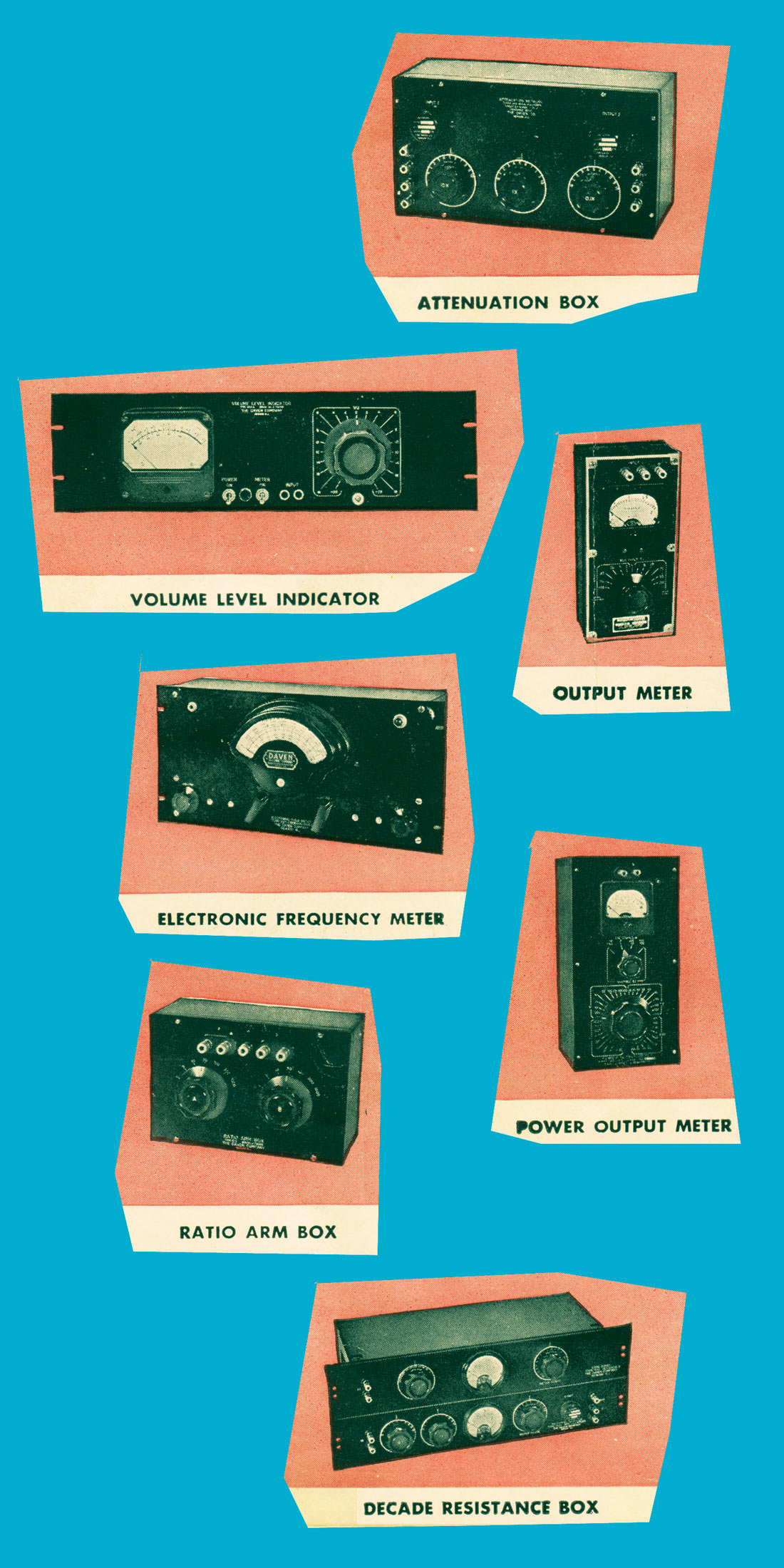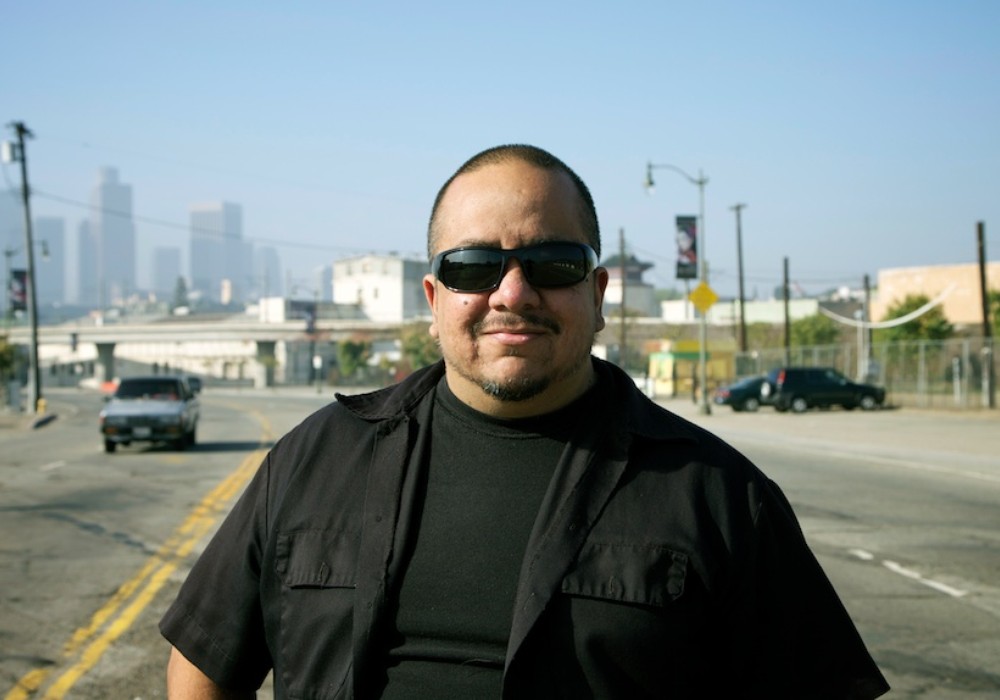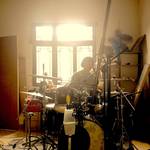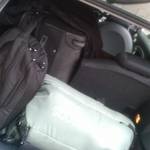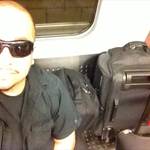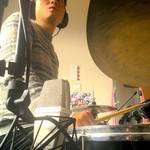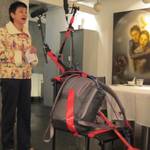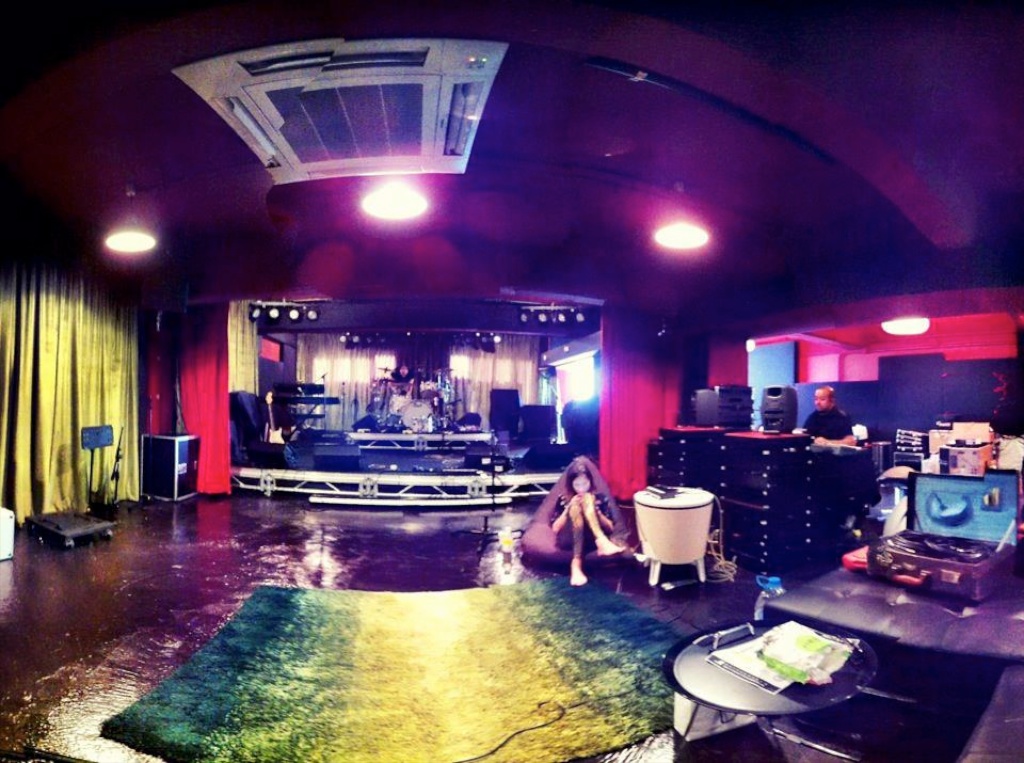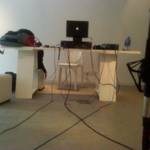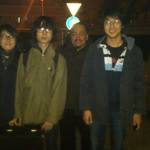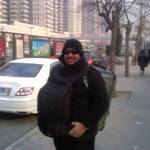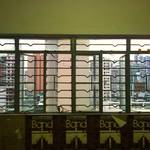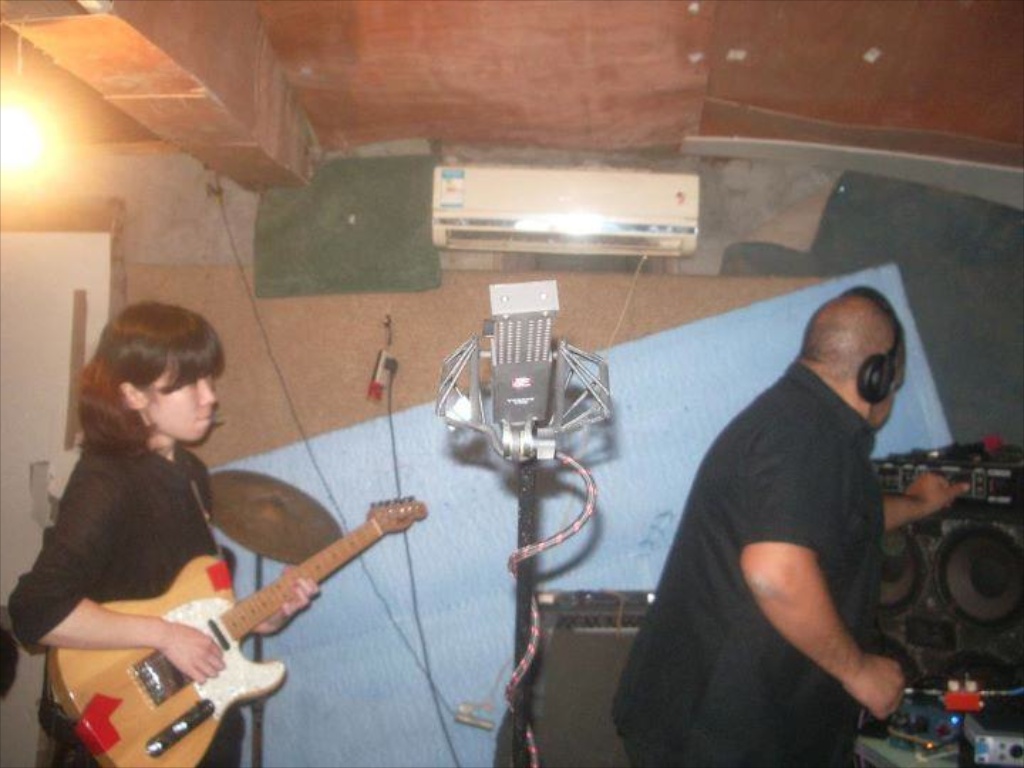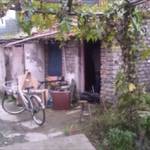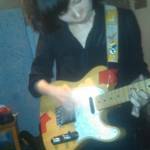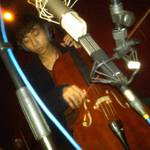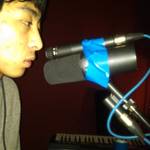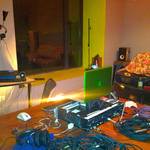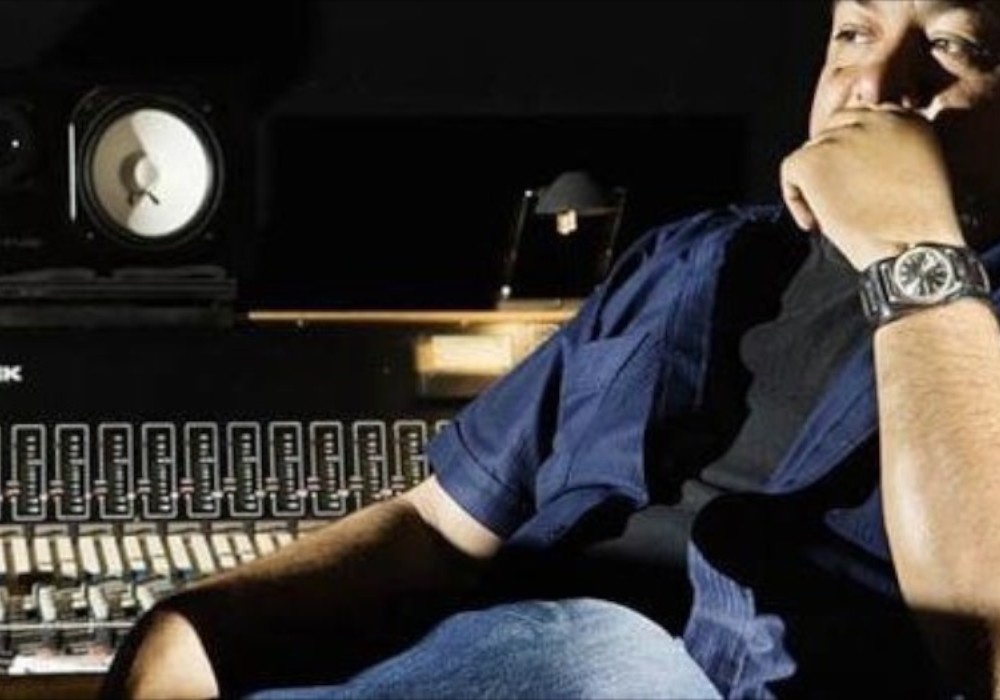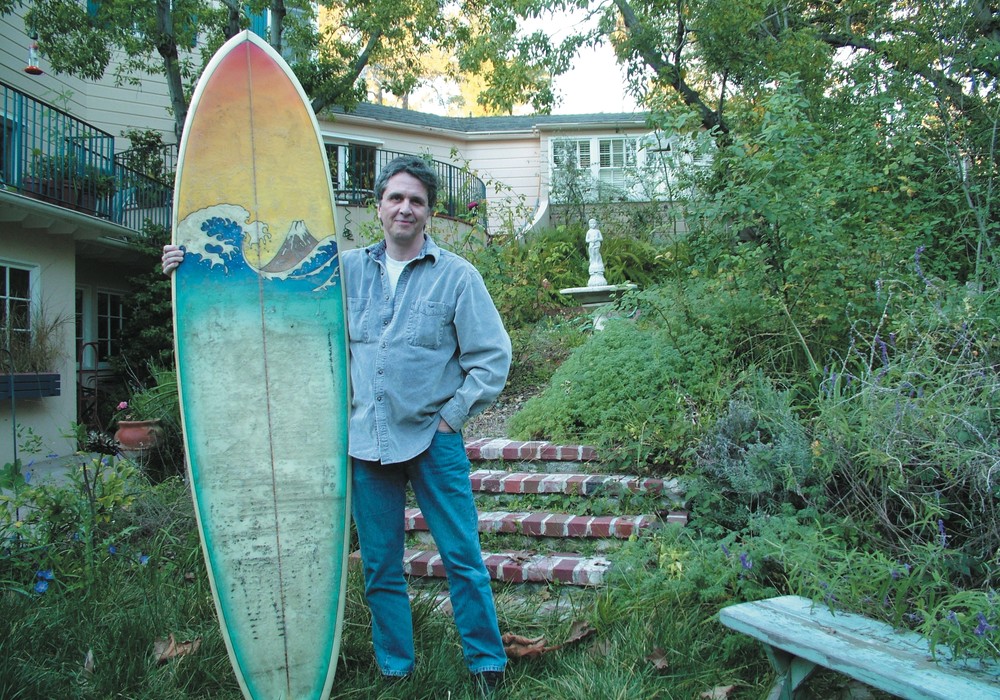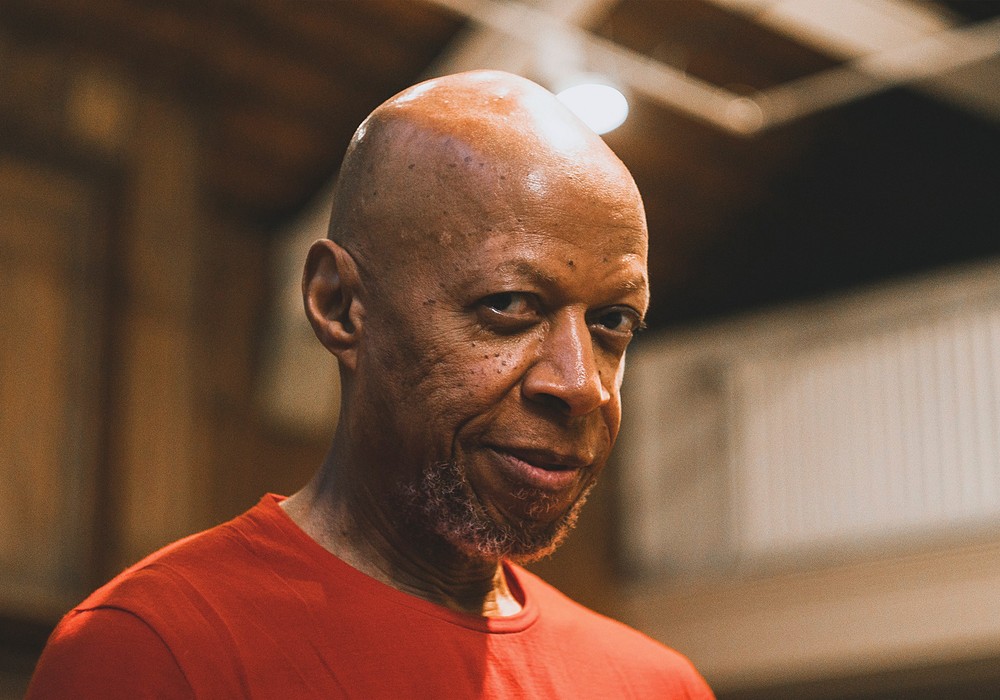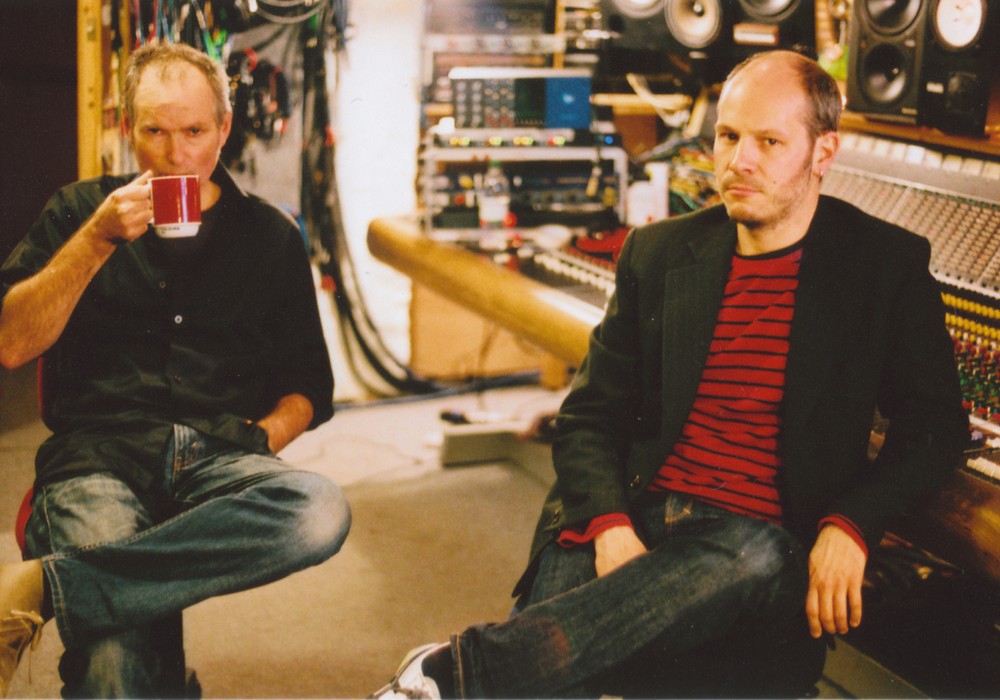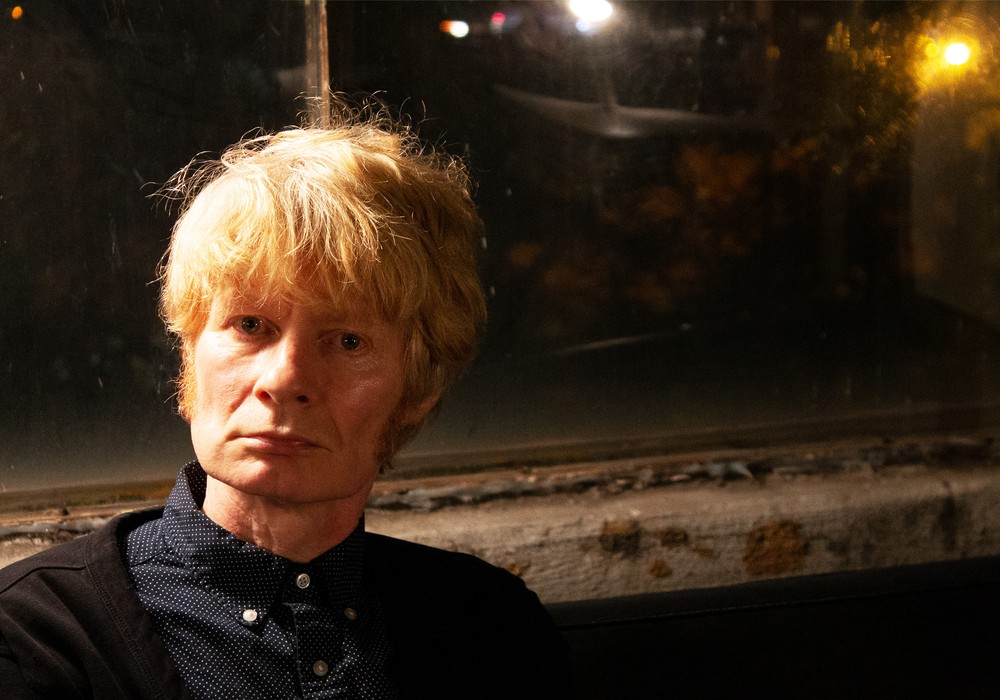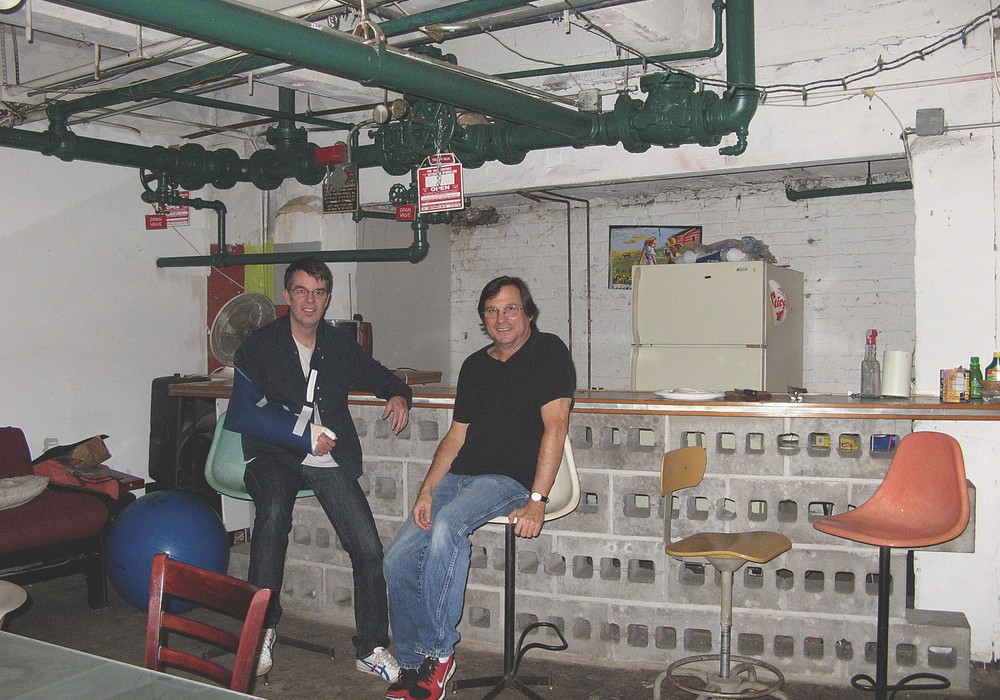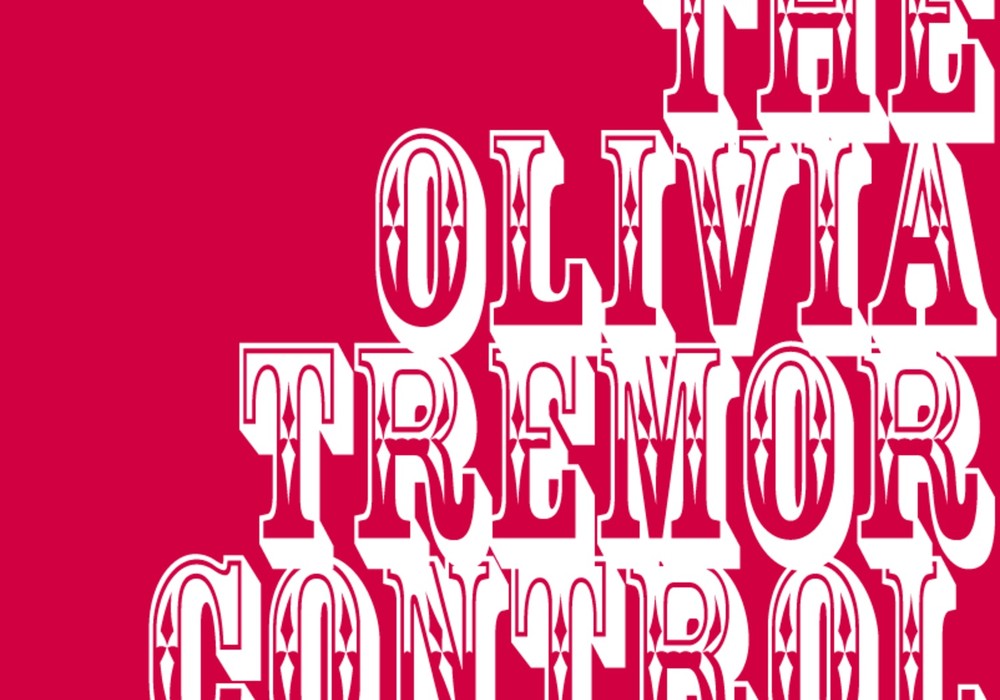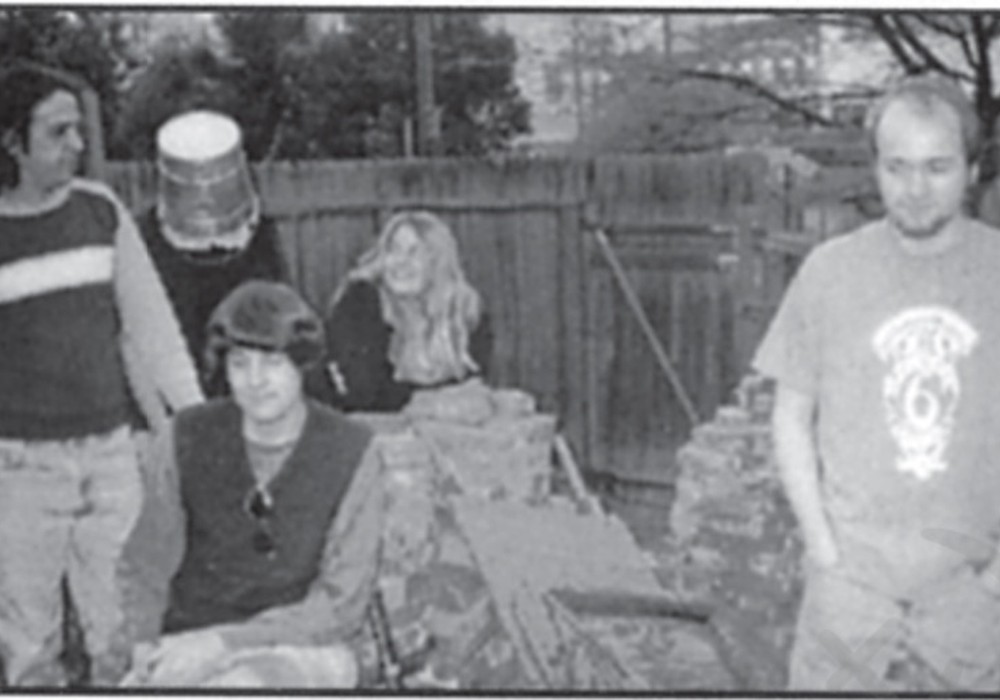As the driving force of the group Distortion Felix, Manny Nieto got bit by the recording bug after working with recordist Steve Albini [Tape Op #10/87] on their I'm An Athlete album in 1999. Manny quickly built a studio in East Los Angeles, Manny's Estudio International, and soon bands like Chokebore, The Breeders, Vaz, Health, Trash Talk, and even Los Lobos, were tracking records there. But a decade on, something snapped in the head of Manny Nieto, and soon he was off on a recording odyssey that took him to China and Southeast Asia, including the cities of Singapore, Beijing, Hong Kong, Macau, Chengdu — even venturing into New Zealand for sessions. Along the way he recorded some of the best acts that you may have never heard, like Pairs, Poubelle International, Reign Lee, UNiXX, Boys Climbing Ropes, Snapline, Forget the G, Proximity Butterfly, Hedgehog, Chui Wan, Cheating Sons, In Each hand a Cutlass, and Obedient Wives Club.
I first found out about Manny's journey directly from the explorer himself, receiving an interesting email not long before the quest began. These emails continued unabated as his trip was extended and more records were made, and the excerpts below make for fascinating reading. In between trips to Asia, Manny dropped by my studio post-session one night, and after some delicious burritos we popped some beers.
Check out the extensive candid gallery of Manny's travels and recording sessions below, and read the full interview that follows.
So you started out in a band?
I have my own band called Distortion Felix. We just haven't played out. We were signed to two indie labels. One of our labels was out of New York — Johnny Temple from Girls Against Boys had this label [Akashic Records]. We made two records. On the first record I recorded a few songs on it. A local engineer, Bruce Bouillet, produced it. Hell of a job. To this day, I don't know why he's not making records anymore. My bass player was Juan Alderete, and he's actually the bass player for The Mars Volta now. We did a record with Steve Albini [Tape Op #10, #87], and that's when things changed. Juan was the one that asked me, "Why don't you make a studio? You're always doing 4-track stuff, and you love it." I was so dumb, and I was like, "Yeah, I think I could do that!" I leased a building. I bought a 2-inch, 16-track machine that gave me ulcers. I had to take a washer, put gear grease under the washer, and hold the pinch wheel so that it wouldn't stick and it would roll. I literally had to grease that thing. It was the only way it would work! It was a 1972 MCI.
JH-10 chassis, JH-16 model number?
Yep.
My first tape deck, too.
You had to watch it all the time. I remember when I did that record with Albini, he told me all those things about how to build a studio. I remember when he told me what kind of boards to buy, he said there are really not a lot of options you have that are affordable. I ended up using a TAC Scorpion for eight years. Now that I record, I know that the low end is really rough and loosey-goosey, but they had a certain mid-range and a certain character about them. A lot of my first records were made on that. I'll be honest with you, I still listen to those early records, and I can't even believe how I made them! I don't even know how I routed them. I used to route stuff through guitar pedals, because I couldn't afford a compressor, so I'd use a guitar compressor for the vocals or the drums or whatever, and it sounded dope! I had a job, but it's like, how are you going to really support having a studio? It was one of the first times I realized like, "Oh my god, what did I just do?" I just put all this money in and bought a studio. I'm playing in a band, and it's my hobby, but it's literally eating up half of my income.
Were you getting enough work?
Bands started to ask me to do records, and my first three records — two of them were on Amphetamine Reptile [Records], out of the Midwest. There was this band called Chokebore, and I the guys from Hammerhead had a band called Vaz. I did this record [with Vaz] called Dying to Meet You. To this day, I listen to that record, and it's the most brutal, heavy, badass record. And I listen to Chokebore, and it sounds like a movie soundtrack. These were all done [at a time when] I literally didn't know how to plug a mic pre into the board. I didn't know how to do anything! After about two years I went from being booked three weeks ahead to three months ahead, and I had to make a decision. I was an operator for AT&T, and I was like, "Do I quit my job as an operator?" I quit my job. The fun of playing in a band became the fun of, "How am I going to make this band sound amazing?" Suddenly you get the goose bumps, and you start trying to create art. That was a turning point. Suddenly you turn a corner and start to get a grip on what you're doing, what the mics sound like, and what your gear sounds like. I stopped counting records after 450 in 2004. I made so many records with a TAC Scorpion, 12 microphones, and no outboard gear.
Were you in L.A. at this time?
I was in East L.A.
What year did you set up the studio space?
Like 1998, 1997.
How much per day for you and the studio back then?
Some carne asada burritos and IHOP, pretty much. No, I didn't know. I would just have the bands pay me whatever. But it's weird. If they paid me $75 bucks, I was held to that $75.
Yeah, you still gotta work all day.
I still have my studio.
What stuff do you end up recording?
I do a lot of bands' first records. It's honestly true. I go out and find bands that make me excited. I'm like, "That band's fucking great." Then I do the record from the beginning to the end. In Los Angeles, I've definitely gotten some of the most hardcore, coolest, weirdest bands, and I've just prided myself on always getting interesting music. It's really the only thing that's saved me, and the only thing that makes me feel really excited. The industry's collapsed, and all the big producers are coming outta the hills; they don't have work and they're trying to find cool bands. I've spent my whole life recording the coolest bands. No Age used to be WIVES. I recorded WIVES on a 16-track, mixing it before they were No Age! I'm excited that I did that record. No one had ever heard of these bands. Locally there was a band called Trash Talk, and I did their last record. They're one of the sickest, hardcore American bands. Those are some of the last records I made before I went to China. I was really proud of them, but those records are like one of those things you just don't write home to mom about. They're intense. I can't play them to get Coldplay, you know? I'm not doing any Coldplay bands.
Right, right! [laughs]
I'm doing a band that I see at a club, and you wish that you could make this sound great on a record. That's why I went to China. It was the coolest thing. I got to see bands, find them, really dig 'em, and then make their records from the ground up. These days it's something that's a little bit rare. Not the production part. You don't really produce a lot of them, but with a few of the bands I really went overboard. Some of them I just captured.
What was the impetus for the bands to work with you while you were in China?
Out of all the bands I contacted, none of the bands had the money to record in a studio. There wasn't one studio that I found that was affordable. It was about $700 to $1,000 [USD] a day in the studios, across all of China. You basically get a few pieces of Avalon gear, and maybe a Mackie board or whatever. I'd also heard from sE Electronics that in Shanghai there are literally 40 or 50 prestigious studios, but those studios only handle commercial [work]. There's a huge amount of commercial business that's done in recording studios, where people are buying SSLs and Neves and stuff like that, but they're not really open to artists. Artists can't afford them. I didn't get to see any of those. My thing was contacting a band, and when they'd say they didn't have enough money, I would say, "Can you afford a hotel? Can you fly me into your city?" I basically just started making records for a flight in and out, a hotel, and some extra money for food. The bands treated me really great. They were all super nice. I told my mom I was going to be back in a month and a half, and that's when it hit Christmas. I worked Christmas Eve, New Year's Eve, Christmas Day, Easter, and my birthday. It was just like I worked every single day I could out there.
I got emails from you as the trip was about to commence, and then finally you're like, "I'm gonna miss my son's graduation if I don't come back!"
I think I just went crazy doing it. With about as much gear as you could go to Guitar Center and buy with a few thousand dollars, I found that as I started to record I realized at that point how mortal I was as far as "having a studio" and doing stuff. You know what? It's not a big deal to put mics up and record. It kind of brought me down and made me really appreciate not only having the knowledge I did about making records, but realizing that it really comes down to bands, performances, and how they play and how the amps sound. I don't care what someone says. A Neve mic pre and a Neumann mic is not gonna make your band sound good. You have to be good. It sounds so old to say that, but it's true.
After recording 14 different albums on the same minimal gear, you realize how different things can sound and what changes the sound of the records.
I learned a few things that I thought were interesting that I never would have done in my own studio. I decided, maybe after my second record, to start recording bands without headphones. It didn't matter what city I went to — I could always find a live venue that would let us go in and cut vocals. So I'd basically run my music through the PA system, use a [Shure] SM7, and have singers sing in front of the PA system. They would just lose their mind that they didn't have to use headphones! Once I got in that live venue, I'd pump the drums through it and then mic it up. That was something I hadn't done in years, and I realized that adding air to anything really makes your minimal recording sound better. I didn't have any mic pres, so I found myself buying an MXR bass DI as a preamp for the guitars. Then I had a Fulltone, another guitar pedal (like a distortion box), and I'd run a guitar DI into that and then boost that and use it like a pre, and then go into Pro Tools. I also had a BAE preamp and that would always be for snare or for vocals, so my chain would be a premier preamp, and whenever I was overdubbing, I'd make sure things would go through that. That kind of helped me out. I had the little ART pedal.
The Tube MP?
I don't know what it is. It's a small little preamp. That's what I ran on the floor toms. My friend gave it to me, and I was almost not going to bring it. Then I realized that it was the best floor tom pre I'd ever used.
You were recording through a Digi 003?
Yeah, there was a local shop called Future Music, and they had a 003 in there for $400. I got a laptop that was already loaded up with Pro Tools and had the plug-ins on it, and basically that was it. I got all these little pieces of my system together, and I realized they're too heavy. I had to really simplify it down to where I had the preamp, the 003, my laptop, enough microphone cables, and then all the things that you would need for flipping phase, pads, different inputs, and DIs. One of the things that really saved me was an amp splitter. Do you know Radial Engineering that makes the good splitters?
Yeah.
I got a good amp splitter that I used whenever I did overdubs. Every overdub I did was four mics. If I was doing guitar overdubs, I'd have a front, back, a room mic, and maybe two amps. That's how I got that really big, wide sound — by getting multiple amps, using a room mic, and having that amp splitter. If you run two amps and you split them, sometimes one's out of phase. With those splitters you can switch one in phase and it really helps.
What were you monitoring through?
Headphones. It was a nightmare. I got these six Sennheiser headphones for $89 bucks from BSW. I gotta be honest with you, those headphones were so great. They lasted me almost the whole trip, and on the last record I worked on, they all went bad.
After all that travel?
Yeah. I had a headphone amplifier by Rolls; this thing was so dope. This is my favorite headphone amp. I'd bring my Digi 003 outs into that, and then basically everybody can have their own levels, and I put that up near the band.
What kind of music were you recording?
I went through China three times, and as I went through the records seemed to get more intense. It was only because I started to find out about more bands. When I went to Beijing it was like the noise capital of China, but all the bands were different fragments of noise. It's like they incorporated some Sonic Youth, but then some of the bands liked Suicide. A drum machine, but with Sonic Youth bass. The singer sings a little bit like Radiohead, but not. One of the sickest bands I recorded was a band called Chui Wan. It was like Syd Barrett singing over Battles! The rhythm section was a girl who had played bass about a year, but she played like fucking Fugazi! They had no idea who any of these bands were!
Really?
There was another band I did called Hedgehog, which was probably one of the greatest rock 'n' roll bands from China. The drummer, Atom, is like 4' 10" but when you watch her play drums, it's like watching Dave Grohl. She's the most violent drummer I've ever seen, and you can barely see her head over the drum set.
Were people singing in Chinese, or English?
I think most of the stuff Chui Wan sang was in Chinese. The band Hedgehog was in English, but then there were a lot of things they would sing that meant Chinese. Like they would sing about Chinese love, or tree, or they would mention things that were Chinese names, but then they would be singing English words with them. Probably one of the coolest bands that I also recorded was Snapline — one of the legendary bands of Beijing. They're one of the first batch of bands that came out of China that kind of made a statement. I got an email from Chen Xi, the singer, and he was like, "If you come to Beijing, we'd love to work with you." I was so excited, because before I even knew them, I was watching their videos, and I was like, "This band's fucking great." They have a drum machine and two synth players, so I recorded them in this huge concrete room. They ripped out these songs that just sounded amazing. By the time I'd done my first two bands in Shanghai, there was another band called Boys Climbing Ropes. They have a singer named Pei Pei, from a small Chinese village. Once again, she was a small woman and the bass player, a Canadian guy, was 6' 7" and they're rocking out next to each other. But Pei Pei was like Björk. She had this voice that would just captivate you. I did this metal band that contacted me while I was in China, and we went to this studio called The One Club. It was a lush, posh, really great live venue, and then they had a huge studio next to it. So I got to cut a metal band in there. Then, when I went to Hong Kong, I did this crazy psychedelic band. Hong Kong's split in half. It's Hong Kong Island, and then there's Kowloon. I recorded the bands on the Kowloon side, which is like the more fucked up, industrial area. At that point, it was my first trip through China. I couldn't have been happier, and I didn't even realize then that I'd have two more trips through the same cities and work with more bands. But all the bands blew my mind.
Yeah.
Each band didn't sound like the other bands. You go to any scene and you get a lot of duplicates. The bands in Beijing don't sound alike. I don't think it's them trying to be different. It's just that there are so many different fingerprints. You couldn't even get people to be on the same page. They're just all coming at you with different ideas of what they think music's about. Because their whole life is so controlled, it's almost like turning on a light. It just turns on, and that's what it is. Can't shade it, can't stop it. I ran into some people after this trip, and the first things they thought about China was to kind of belittle it. Like, "Oh yeah, well, what is it, Chinese music?" I'm like, "No man, they throw down as hard as any band I've done in L.A." They have musicianship, they breathe the same air as us, they have the same loves and dreams, and they're in a country that is absolutely amazing and yet oppressing at the same time. Even with all that pressure, they still make music! They still make art! And they're doing it every day. It makes people who make music here take it for granted, when they can go to their buddy's house and make a record in their room. They don't have that. I'll champion any band from over there. They're absolutely amazing.
Nobody else has access to recording gear like you had?
There were guys around town that would have laptops and stuff with Ableton Live or programs, but a lot of those guys make electronic music, which is still vibrant anywhere you go. People are still making stuff on their laptops. There's always a kid in the back room that's making great music. It's the same thing there. The engineers that I ran into in China only know what someone tells them. If they have a book on how to record, they do it like that. The records that you and I make are records that through blood, sweat, and tears we figured out how to make. I'd sit with a lot of engineers and say, "Okay, we're going to try this. Check this out." We would like baffle something off, or I'd use a room mic, or I'd say, "Hey, can you flip the phase on this?" And they'd be like, "Wow, that's incredible!" Just little things that we take for granted, they didn't know. I made a lot of friends with some of the engineers. But most of my records were made in the places that you would not want to haul a microphone or a piece of gear. What I realized about China is no one else knows about what's going on in other cities. Beijing doesn't care what's happening in Hong Kong. For the most part there isn't a link. There's no Pitchfork of China.
Well, they're not getting in a van and going there to play shows, either, are they?
Here's one thing about China that no one knows. The bands in China all want to come to the United States. But to tour in China, I think they've all got it made! Every live venue has to have a back line, because the bands don't have any instruments. So if you want to tour China, you've got a backline, you've got super cheap transportation, you can take trains, fly in anywhere, and in any city that you go to, they have all your gear ready. All you need to do is make that railroad — connect the dots. I talk to the bands all the time, and they're like, "Oh yeah, you're right! You can go and tour China."
Wow.
If you're going to be picky, and you don't want to play out of a Peavey or a [Mesa] Boogie, or whatever they've got, then bring your own back line. But to a certain point, if you just want to tour somewhere cheaply and affordably, and if you can get through customs and get the visas, you can tour China. If you stay domestic, the flights are super cheap. When you go from Beijing to Hong Kong, it's more expensive.
Right.
So the bands there definitely stay in a circuit that they play. I just think it's in the embryonic stages, and it could be something bigger and better. Like in the States, you've got to drive a van, you need insurance, and you need gas. You can do some vans [in China], but you can also fly around there. You can take a train, you know!
Do bands tour like that?
Yeah, bands tour, and it's crazy because a lot of them are sponsored. One band I did was a band called Health. When I was in China, after I had already planned it, I had no idea Health would be there, but when I went to Shanghai, Health showed up. Converse had paid for Health and some of the sickest bands of Beijing to come in. So there are some hip companies that find the hippest bands in every city. You can't get a ticket to go see Health locally, because it's not advertised anywhere. So the kids that like Converse will get an email saying, "If you want to see Health and Carsick Cars submit your email, and we'll get you a ticket." So all the hippest kids in every city get in tune with this underground circuit.
Right.
So it's still this unknown thing. It's not like you look at the Troubadour in L.A. or the Showbox [in Seattle] to see who's playing there. You just have to be in with the people that know, and then your band's playing there. The industry in L.A. doesn't really care about China. My angle is if I think I'm going to make any bands "famous" or anything like that, there is no angle. It's just strictly for capturing art, and for the people that want to hear it. I would hope that they'd want to hear it, because it's mind-blowing. But they're just people in another country that make music, and under most circumstances, no one in the United States would hear it. I'm one of the few guys [to do this]. Martin Atkins went there before me — I've got to give him credit. He landed there maybe three years before I went through. He went to Beijing for 16 days. My only credit is I was in Beijing for 40 days. But at that point, who am I trying to impress? No one! Because no one cares!
Well, they'll read about it now!
Yeah. We were talking about like if a young producer, a young engineer wanted to do something like that, I would welcome them! It's not that I did something that was forbidden. You're gonna get food poisoning four or five times, haul your gear around, and if you're going to really hike around and physically abuse yourself carrying all of this gear. Do it! It'll be life changing. My feeling is that as things get better over there, and if the economy doesn't hit any hard times, there are a lot of artists and people over there. For instance, if you're going to build a building over there, you hire European architects. They bring in a lot of people. It's like, let's just bring in the best, and they'll help build China.
Yeah.
Well, it's the same with music. There are a lot of producers, writers, and engineers that get called in, and a lot of people that make movies, commercials, and all that stuff. A lot of Western industry is going over there and working. The gates have been opened, and they're just doing what they want to do, and it's mind-blowing. The kids there are just as hip as the kids here.
Do they find out about things via the Internet, I assume?
Yeah, the same places. Singapore is another tie-in. People go like, "Well, what does Singapore have to do with China?" Almost everyone in Singapore is of Chinese descent. They're from China. When Singapore started to prosper, it's kind of the Switzerland of Southeast Asia. It's one of the most universal amazing countries. They have no crime, literally, and it's just an amazing country. There are artists that live there, but there's never been art there. The government and society doesn't really do anything for the art. There's really no art culture in Singapore. It doesn't have a history of Europe or somewhere like that, but these Chinese artists that have gone there who have decided to make art are unbelievable. They have these bands that play there that don't have a singer, but you're watching orchestrated, beautiful music, for a full two hours.
Do musicians experience censorship or anything from the government?
Well, in China, everything that's released has to be run by the government. If you write any lyrics, even if it's sarcastic or whatever, and you get banned, you get banned for life. There was one band that I knew about that the singer said some bad things in a song. He actually can't even go into a festival. Everything is run through the censors. When records get done, they get turned in, and you wait for someone to listen to it, go over the lyrics, and then once it's stamped okay, it can be released.
What were the recording processes like?
I've always grown up using tape machines. But when I went to China, the two last records that I worked on were the most demanding and, to me, I feel like some of my best work to date. Just because of the detail of the recording. When you listen to a Fleetwood Mac record, you listen to that and hear these details. I'm not even talking about if you like the band or not. There's just details in the recording that come from them sleeping in the attic of the studio, coming downstairs and making music all day, going back to sleep in the attic, and coming back down to make those records. There's this weird sense that you're submerged in the record that you do. Like when Rick Rubin would do the Red Hot Chili Peppers in a house. When I lived with the band for almost five months in a basement, there's this weird moment that happens where you start spending days doing things you wouldn't do it in the studio. You're not going to let a guy play mandolin in here for seven days of your time. You can't afford it!
You can't afford it. I can't afford it!
But I would sit there for seven days with this guy on mandolin, or a guy with a violin or a lap steel. I was doing all of these things, and without even knowing it, you were making these works of art that were beyond the scope of hours in a studio, and it was purely on creativity. That blew my mind! I accumulated all this knowledge of recording bands in these fucked up places, weird mic techniques, figuring out my system, and literally learning everything I had brought.
What did you take home from these travels?
You're looking at your whole life of making music, and you just have to do it for the right reasons. It has to be for you. So the idea that if someone's going to read Tape Op, and they want to work with bands, you have to see it through. You've got to really want to do that.
I look at the calendar — September isn't booked up yet.
It's scary, right? You know, that's one of the things that I realized too. When I left L.A., I kind of realized that it's a lonely world when you make records. And when I wrote you letters from out there, there's a slight insanity in the isolation. But the insanity is that you just start to realize that the artist in some ways is always right and important. They're the ones expressing the music. It's hard to stay out of the way, but you just have to realize where you are. You're not the band. I feel like you're only as good as the band you recorded, and in some ways, you're only as good as your last record.
Yeah. Totally.
That's the way I always look at it. So if I'm working with a band, even if they've only got a few hundred bucks, I have to record it like I'm going for the jugular. It's going to be all or nothing. When I've done those hardcore bands — no one likes hardcore bands! They're always like, "Fuck hardcore. We're going to be into hip-hop." I do those bands like, "Oh my god. My life depends on this to sound ferocious." I'm as proud of those records as some of the nice pretty records.
